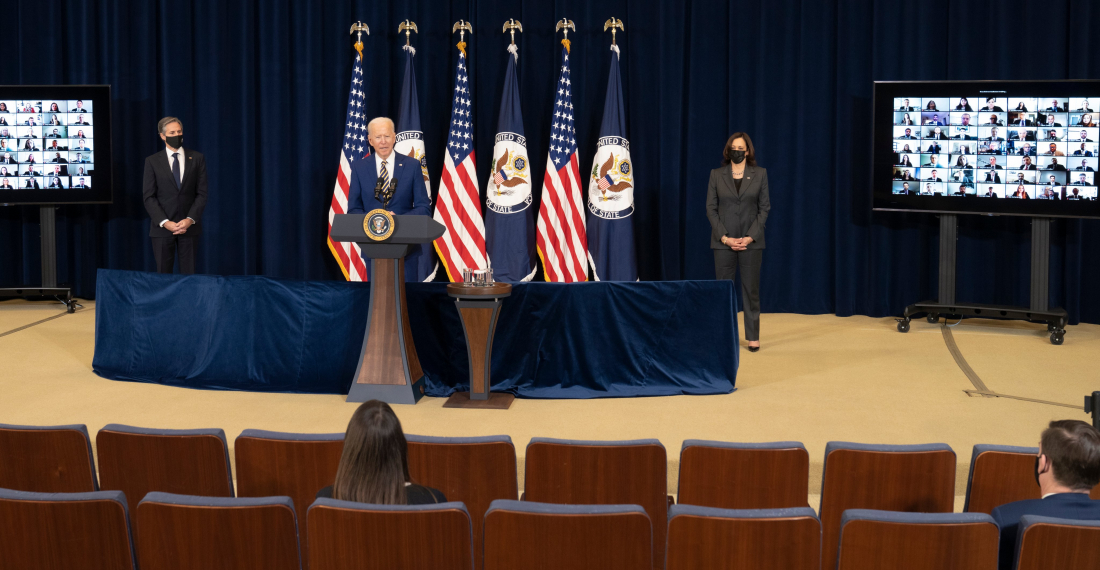US President Joe Biden announced, in a speech to State Department diplomats on Thursday (4 February), that the US will end its support for the war in Yemen, ending involvement in the military campaign after six years of supporting the Saudi-led coalition.
“This war has to end. And to underscore our commitment, we’re ending all American support for offensive operations in the war in Yemen, including relevant arm sales,” the US president said in a speech at the State Department.
The administration of former President Barack Obama initially backed the Saudi-led coalition but curtailed its support during the final days. However, it failed to halt the support completely. Under president Trump, the US resumed its support for the war.
President Biden's announcement also coincided with the appointment of Tim Lenderking, a career foreign policy officer, as a special envoy to Yemen.
“We are also stepping up our diplomacy to end the war in Yemen, a war which is [a] humanitarian and strategic catastrophe,” Mr Biden said, adding that his team would support a UN-led ceasefire initiative and the restoration of “long dormant peace talks”.
The United States government had earlier suspended arms sales to Saudi Arabia and the United Arab Emirates. The UN had regularly accused the military campaign in Yemen of causing the world's worst man-made humanitarian crisis, with millions of Yemenis on the brink of starvation.
The decision of the previous US administration to designate the Houthis as a terror organisation is currently still under review. Activists have warned that such a decision could complicate aid deliveries and harm the humanitarian situation.
President Biden said that halting US support does not mean the US will not support Saudi Arabia in defending itself against drone attacks and other threats from Houthi-held areas. The US will continue its operations that target al-Qaeda fighters in Yemen.
Reaction from the region has been generally positive.
The Saudi government welcomed the statements regarding defending the kingdom from threats and supporting a peaceful process to end the war.
The internationally recognised Yemeni government welcomed the appointment of the Special Envoy and the support of diplomatic efforts to end the crisis. The Yemeni Ministry of Foreign Affairs said in a statement that the political solution should be based on the Gulf Initiative, the outcomes of the National Dialogue Conference, and the relevant Security Council resolutions, in particular Resolution 2216.
The UAE Minister of State for Foreign Affairs, Anwar Gargash, said in a tweet that "The United Arab Emirates ended its military intervention in Yemen in October last year."
Gargash added, "In its eagerness to see the end of the war, the UAE has supported the efforts of the United Nations and various peace initiatives. The UAE has been from the beginning, one of the largest providers of humanitarian aid to the Yemeni people."
On the other hand, the Houthis welcomed the US President’s administration’s decision to end its support for operations in Yemen. "We hope that it will be a prelude to taking the decision to stop the war on Yemen and that it will be a prelude to taking a strong position in the Security Council in favor of stopping the aggression (referring to the operations of the Arab coalition)," said Hamid Assem, a Houthi official, to AFP.
President Biden also referred to other foreign policy priorities in his speech. He pointed out that America will repair its alliance and communicate with the world again suggesting the US diplomacy is back to mend what former president Trump has weakened.







